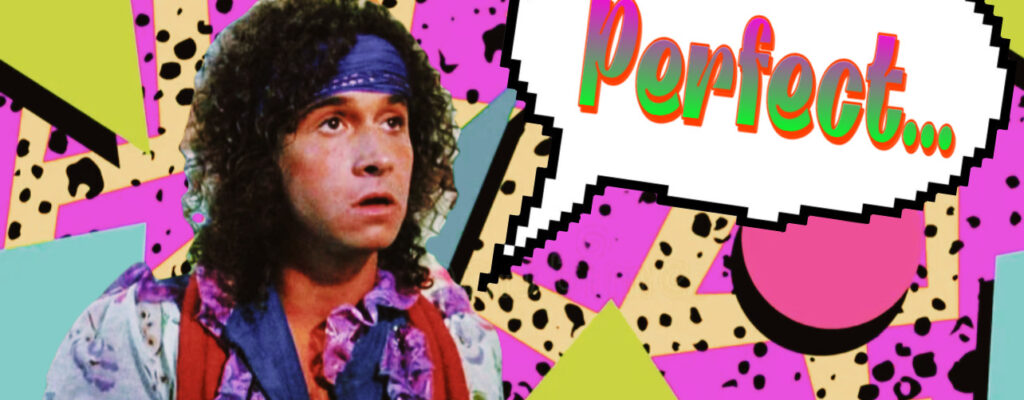It’s amusing to note that a single word that is known to all suddenly becomes a word of affirmation, a piece of modern slang.
“Your total is $48.38,” the cashier tells me.
I hand her $50.
“Perfect,” she says.
Well not really, I think. She hands me the $1.62 that I’m owed. “Perfect,” she says.
I thank her.
“Perfect,” she says.
As I walk to my car, I begin feeling nostalgic about those days when everything was “awesome.”
Once, at gas station/convenience store, I wrote a check for whatever it was I had purchased. Gas, probably, and a one-use plastic bottle of water, maybe.
“Do you have any identification?” the cashier asked.
“Sure,” I respond, handing her my driver’s license.
“Awesome,” she replies.
What, I wonder, is awesome about a man in his mid-sixties having his driver’s license on his person. I pose the question to her. “I dunno,” she replied, sheepishly.
I rattled off a couple of things that I thought might merit a description of awesome. The first moon landing. A Calder sculpture. Beethoven’s Ninth Symphony.
“Awesome,” she agreed.
I still occasionally hear somebody say “awesome,” but “perfect” has clearly taken hold in modern times. I have no answer why this coinage of a single word to describe an event or situation has come to be. And its origin as a phenomenon is vague at best. It perhaps harkens back to when Black jazz musicians were developing language variations in the ‘40s and ‘50s, during that time known as the Be-bop Era. Lester Young, the original hipster, began using parts of the English language as nicknames and references to the hipster lifestyle. Young is said to have popularized use of the term “cool” to mean something fashionable. Another slang term he is rumored to have popularized was the term “bread” for money. He would ask, “How does the bread smell?” when asking how much a gig was going to pay.
“Cool” has withstood the test of time. Stuck in a linguistic rut, I use it regularly, especially during telephone conversations with the jazz cats I speak with. “Cats,” yet another single-word expression of one’s acceptance in the underground.
I had landed a gig with a major magazine to put together three issues addressing the world of kitchen design. Over an early morning al fresco breakfast somewhere in the Wilshire district of Los Angeles, my boss on the project read through my expanded editorial content. “Sweet,” he said. He pronounced it as two syllables.
“Soo-weet” he chimed. Every particular of my editorial plan was greeted with “soo-weet.” It grew tiresome.
It was nearly two decades later that I heard my son describing a ship as “sweet.” It was even sweeter when he took command of the vessel.
On certain occasions I’ve heard a word whose usage should be backed by some knowledge of its meaning. There have been several firings of university professors, columnists, and government officials for their written use of the word niggardly. Due to the fact that it sounds similar to a highly offensive and inflammatory racial slur euphemistically referred to as the N-word, despite the words’ visual and auditory resemblance to it. Because of that resemblance, both niggard and niggardly are often taken to be offensive.
Niggardly means miserly or cheap. It’s also a word that can easily be substituted, which is the path of least resistance.
I suppose all of this might indicate an existential threat to the English language. But I doubt it. Several times a day I hear news anchors and reporters misusing the word. And several times a day I’m reminded of a professor I once had for a class in existentialism. Borrowing from a book of essays by John Paul Sartre, Being and Nothingness sets out to develop an ontological account of what it is to be human. The course delved into the existential dilemma: because we are free, we are also inherently responsible.
Kris Kristofferson had it right all along.
My best guess is that some grad student or producer spoke the word out loud. Others heard it and the race to misuse it at every juncture was on.
In an imperfect world, it’s nice to note that those defining things as perfect is a sign of optimism. It’s awesome that others acknowledge that. It would be sweet if we all could be so cool with those niggardly fools who have failed to grasp the existential threat that we can see on distant horizons.
I’d say that the whole subject and situation is “bodacious.” Let’s see if that catches on.
Photo illustration by Courtney A. Liska
Chocolate Mousse
1 pkg. gelatin in ¼ cup cold water
3 oz. dark chocolate
1 cup whole milk
½ cup powdered sugar
Pinch of salt
1 Tbs. triple sec
2 cups heavy cream
Melt chocolate in a double boiler and add milk, beating until smooth. Remove from heat, add gelatin. Add sugar & salt, stir until blended. Cool slightly and add triple sec. Cool until beginning to set. Whip the cream until fairly stiff. Blend with chocolate mix. Pour into ramekins and chill.

When I go to a store or any other establishment and say Thank You to a Generation Xer or younger, the inevitable response is: “of course”. To me, the words “of course” always go along with the Mr. Ed talking horse song or the Grey Poupon commercial.
Whatever…
I prefer of course over no problem.
Truedat
These essays are perfectly cool and awesonme, and I mean it!
Groovy. Reading this was a real happening.